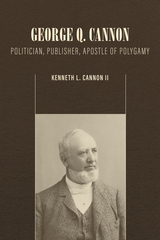
In 1912 a young scholar published a slim volume investigating the social structure of the late Roman Republic, which was in due course to transform the study of Roman history. The author, Mattias Gelzer, went on to hold the Chair of Ancient History at Frankfurt and to become the greatest German-speaking historian of the Roman Republic since Mommsen. In 1921 he published his Caesar, which has by now gone through six editions in Germany and is still the standard account, in any language, of Caesar and his age. It amply fulfills the author’s intent “to give the educated public a lively picture of the complete political career of one of the great statesmen of the past.”
Based on a conscientious evaluation of the abundant source materials—primarily the writings of Caesar and his contemporaries—Professor Gelzer’s portrait renders Caesar in heroic proportions, destined and determined from the beginning to overthrow a corrupt aristocracy. The sixth edition (1960), brought up to date and provided with full annotations by the author, is the basis of this translation, which for the first time makes the work available in English.
With Professor Gelzer’s approval, some minor errors have been corrected, both in the text and in the chronological table and the map at the end of the book, and an analytical index of names has been added.

Eleanor of Aquitaine was the wife of two kings, Louis VII of France and Henry II Plantagenet of England, and the mother of two others, Richard the Lionhearted and John Lackland. In her eventful, often stormy life, she not only influenced the course of events in the twelfth century but also encouraged remarkable advances in the literary and fine arts. In this book, experts in five disciplines—history, art history, music, French and English literature—evaluate the influence of Eleanor and her court on history and the arts.
Elizabeth A. R. Brown views Eleanor as having played a significant role as parent and politician, but not as patron. Rebecca A. Baltzer takes a new look at the music of the period that was written by and for Eleanor, her court, and her family. Moshé Lazar reexamines her relationship to the courtly-love literature of the period. Eleanor S. Greenhill and Larry M. Ayres reassess her influence in the realm of art history. Rossell Hope Robbins traces the lines extending from the French courtly literature of Eleanor's period down into fourteenth-century Chaucerian England. The essays reflect divergent but generally complementary assessments of this remarkable woman's influence on her own era and on future times as well.
This volume is the result of a symposium held at the University of Texas in 1973.

READERS
Browse our collection.
PUBLISHERS
See BiblioVault's publisher services.
STUDENT SERVICES
Files for college accessibility offices.
UChicago Accessibility Resources
home | accessibility | search | about | contact us
BiblioVault ® 2001 - 2024
The University of Chicago Press









